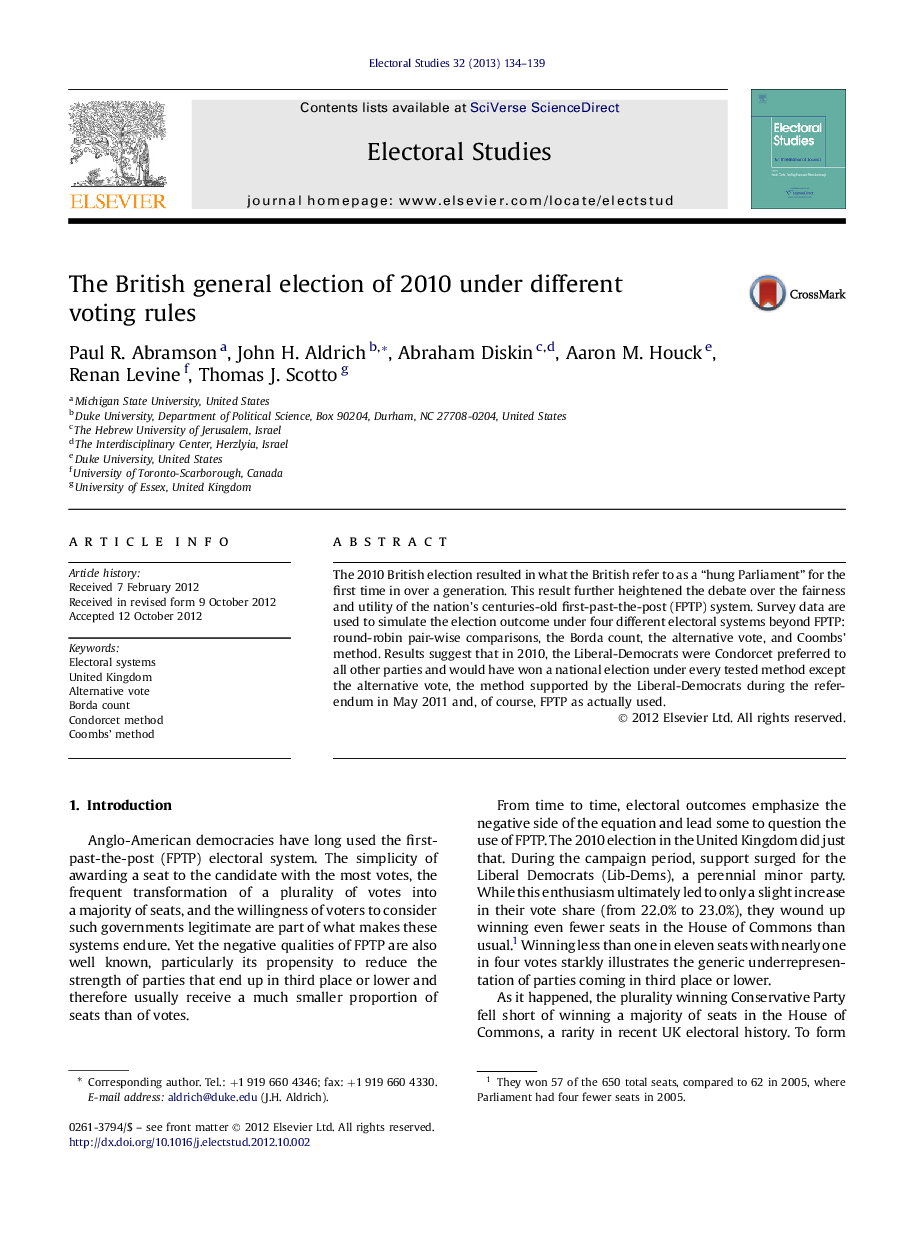| کد مقاله | کد نشریه | سال انتشار | مقاله انگلیسی | نسخه تمام متن |
|---|---|---|---|---|
| 1052165 | 946375 | 2013 | 6 صفحه PDF | دانلود رایگان |

The 2010 British election resulted in what the British refer to as a “hung Parliament” for the first time in over a generation. This result further heightened the debate over the fairness and utility of the nation’s centuries-old first-past-the-post (FPTP) system. Survey data are used to simulate the election outcome under four different electoral systems beyond FPTP: round-robin pair-wise comparisons, the Borda count, the alternative vote, and Coombs' method. Results suggest that in 2010, the Liberal-Democrats were Condorcet preferred to all other parties and would have won a national election under every tested method except the alternative vote, the method supported by the Liberal-Democrats during the referendum in May 2011 and, of course, FPTP as actually used.
► BES data used to estimate voter preference orderings over three political parties.
► Simulation of 2010 British election under four electoral systems beyond FPTP.
► Consider round-robin pair-wise, Borda count, alternative vote, and Coombs' method.
► Liberal-Democrats would have won under every tested method except AV.
Journal: Electoral Studies - Volume 32, Issue 1, March 2013, Pages 134–139